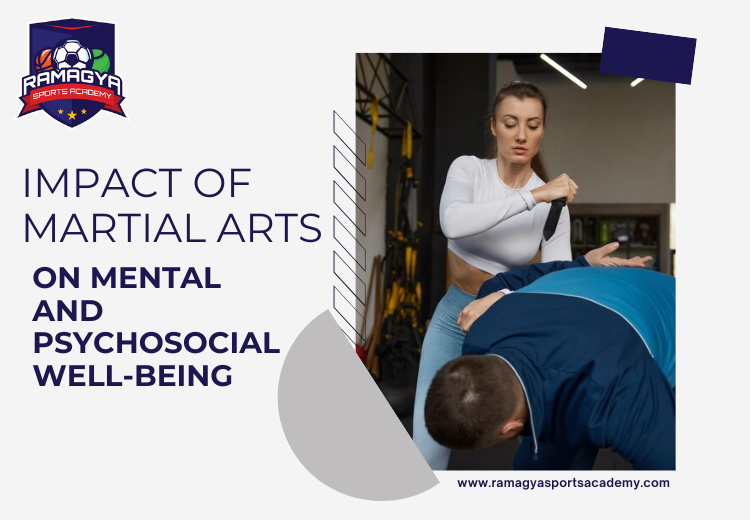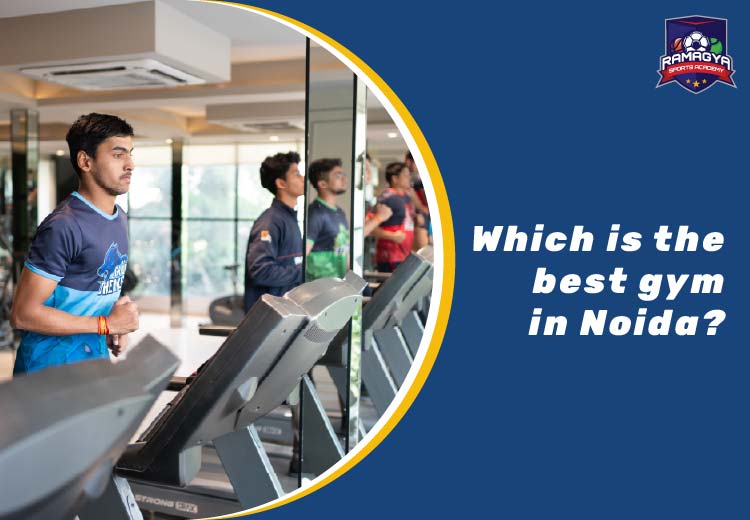
Joy of Dance: Why You Should Consider Taking Dance Lessons
June 12, 2024
Just Keep Swimming: 9 Health Benefits of Water Workouts
June 17, 2024The Impact of Martial Arts on Mental and Psychosocial Well-being
From their historical origins as defence training, martial arts have evolved into a comprehensive, holistic health approach in recent years. In addition to its physical advantages, such increased strength, flexibility, and coordination, martial arts training has been shown to have an essential favorable impact on mental and emotional well-being. Due to the fact that it provides new avenues for investigation into the psychological and emotional effects of martial arts training, this has gained the interest of both researchers and practitioners.
We find the profoundly transforming nature of martial arts participation during this investigation into the psychological and mental health advantages of practice. Martial arts have several advantages that go well beyond their practice, from enhancing emotional control and resilience to fostering social skills and self-assurance. We will discover its many unseen benefits. One benefit would be a personal development method that goes beyond any dojo walls. By having the interaction of its physical movements, mental attention, and emotional management.
Through precise instruction and focused practice, practitioners learn the skills to remain calm under pressure, giving them the tools to overcome obstacles on and off the mat. People with more resilience have a greater capacity for facing life’s challenges head-on with courage and strength. Training martial arts becomes mentally tough while cultivating a positive outlook and increasing self-assurance. This helps in increasing resilience and a positive mindset facilitates personal development.
Some psychosocial concept of health that are improved by martial arts are as follows:
- Mental Resilience:
- Martial arts practice has been shown to significantly improve mental resilience, an essential aspect of psychosocial concept of health. People develop resilience through intense exercise and focused activity, which helps them become capable of managing stress, setbacks, and challenges. Martial arts trainers help practitioners develop their mental toughness as well as their ability to remain composed under duress, adapt to changing conditions, and endure hardship.
- This strength is not limited to the dojo; it has a good effect on many facets of life, be it relationships, career, or personal goals. Martial arts can also strengthen the mind by fostering self-discipline, confidence, and self-worth.
- Emotional Regulation:
- Martial arts training can help practitioners learn practical methods for controlling their emotions through training. People will learn self-control methods for recognizing and managing their feelings in productive ways that lessen impulsivity and boost emotional stability. Martial arts training often involves deep breathing, mindfulness, and meditation as techniques to help improve emotional regulation and emotional awareness.
- As they progress in their training, martial artists build resilience, which is their ability to maintain calm and make wise choices in stressful situations. Emotional resilience is beneficial outside the dojo in many areas of life, including relationships, jobs, and general well-being. It is one of the most important psychosocial concepts of health.
- Stress Reduction:
- Martial arts offer significant stress-reduction advantages because of their comprehensive approach to physical and mental health. People who practice regularly find comfort from the stress they’ve built up from their everyday struggles. Martial arts training promotes calm and helps us focus, be mindful, and get rid of opposing ideas.
- Martial arts practitioners can improve their ability to regulate stress by practicing controlled breathing and meditation. Thanks to this, they will be able to handle stress better both on and off the mat. Martial arts practice creates a calm and quiet atmosphere that improves mental and psychological health and empowers people to handle life’s obstacles with more ease and self-assurance. Stress reduction is an essential aspect of the psychosocial concept of health.
- Promotes Self-Confidence:
- Martial arts involvement promotes self-confidence by providing chances for skill development, mastery, and personal advancement. People can develop a sense of confidence in their physical and mental talents. With consistent training and advancement, one boosts self-assurance. Learning martial arts gives people the courage and empowerment to push themselves beyond their comfort zones, face challenges, and break through obstacles.
- As students receive recognition for their efforts and accomplishments, martial arts schools help them develop positive self-images and self-esteem. They also help people become more confident and capable in all facets of their lives, which improves mental and psychosocial well-being.
- Social Integration:
- Martial arts can create meaningful social bonds by uniting people in a welcoming and cooperative environment. Martial arts schools are communities that bring together practitioners from all walks of life to train, share knowledge, and develop as a team. Participants develop a sense of friendship, companionship, and community. This happens by participating in partner drills, sparring sessions, and group activities.
- These social bonds offer emotional support and motivation, contributing to improved mental well-being and psychosocial health for all involved. Training martial arts requires teamwork, communication and cooperation that bolster social bonds and interpersonal skills. People who practice martial arts develop stronger social links within the community. The social links aid in increasing a sense of self, purpose, and interpersonal connection. It promotes psychological resilience and happiness in general.
Conclusion:
Martial arts practitioners’ lives are profoundly enhanced by this practical and comprehensive approach to enhancing mental and psychological well-being. Through intense physical training, focused practice, and a study of martial philosophy, people set out on a life-changing path of self-awareness and development.
Outside of the dojo, martial arts have a lot to offer. Following its holistic principles gives practitioners vital insights into the relationship between the mind, body, and spirit, empowering them to tackle life’s challenges confidently. It is clear that martial arts training has a lot of potential to improve general well-being when we take into account all of the good effects it has on mental and psychosocial health outcomes.
Martial arts may provide us with opportunities for personal development, resiliency, and fulfillment if we keep researching and applying its principles to our life. When we accept its transformative power, we set off on a fantastic journey of continuous development and growth that profoundly and profoundly meaningfully improves the lives of others around us and our own.




